You have a bag of whole coffee beans that’s a couple of weeks after its best-by date. You assume they’re okay, but how long do coffee beans really last?
Maybe you read somewhere (e.g., a website owned by a coffee roaster or a specialty shop) that roasted coffee beans are good for only about 4 weeks. Then you see your bag of coffee beans from the supermarket with a best-by date that’s 2 years of the packaging date. What gives?
It’s not like one of them lies and the other one is correct. If you dig in a bit, both are correct. It’s just the coffee beans that are meant for different drinkers. Let me explain.
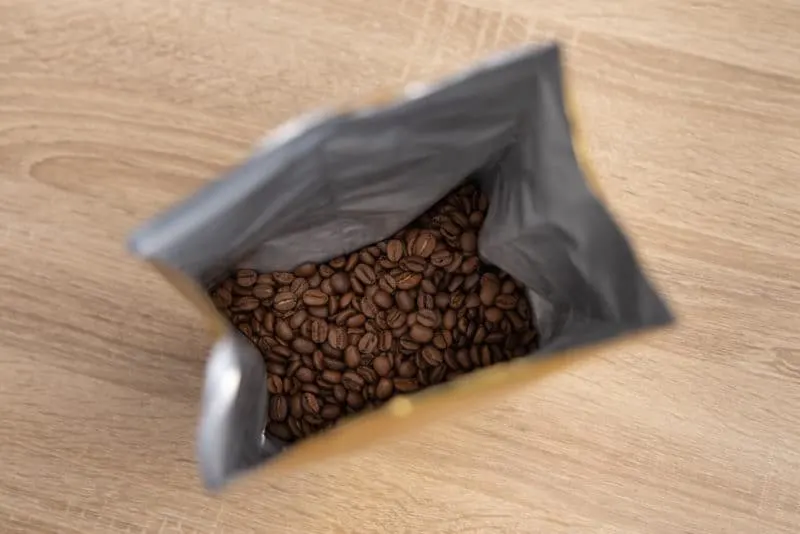
There are (basically) two types of coffee (and beans) out there ([SE]):
- Commercial coffee. It’s the coffee from large brands like Lavazza or Nescafe that’s available almost everywhere. The bag often features a one-way degassing valve that releases excess CO2 without allowing the air in, and comes with a minimum shelf life of 1 to 2 years. It’s the variety for everyday coffee drinkers like me (and probably you).
- Specialty coffee. You can only buy this type from coffee merchants or specialty shops. Each bag of beans says exactly where these come from and when and where they were roasted. Specialty coffee is also much more expensive and often comes in smaller bags than those large ones commercial coffee is sold in.
Knowing the fundamental difference between these two types will help you understand everything else in this article.
With that in mind, let’s get into the shelf life of coffee beans, proper storage practices, and telling if your coffee beans are still okay to use.
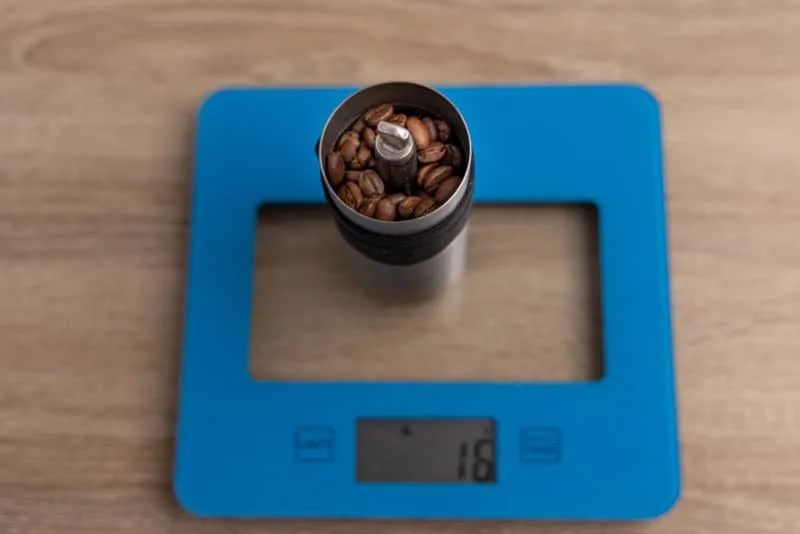
How Long Do Coffee Beans Last?
Unopened commercial coffee beans retain good quality for at least 6 months of their best-by date on the label, and about half a year of opening the bag. Specialty coffee tastes best for about 4 weeks of roasting, but it’s at least okay for another month or so.
Why is the difference in storage periods for commercial and specialty coffee so stark, you ask?
Coffee aficionados who buy specialty roasted coffee beans pay a premium for the best possible tasting coffee. And if you’re one of them, you can probably tell the difference between beans that were roasted a week ago and ones that were roasted a year ago.
An everyday coffee drinker (like me), who mostly buys coffee in the supermarket, cannot tell that difference and hardly cares about roasting dates. That’s why commercial coffee usually doesn’t even mention when the beans were roasted. And why the shelf life is so long.
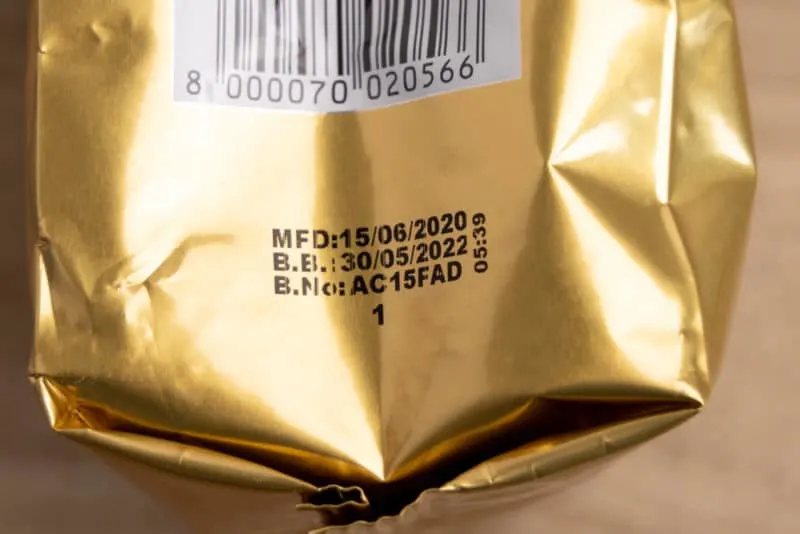
Want your commercial beans to keep good quality for as long as possible? Buy them in a bag with a one-way valve. They release CO2 but still protect the beans from oxygen and moisture ([TBF]).
Long story short, if you’re buying specialty coffee and love freshly roasted beans, buy your coffee in small bags and use them within about a month of buying ([KC]).
Otherwise, buy large bags to save money, and don’t feel bad about having them open for a couple of months at a time. Or opening a bag that’s a couple of months after its best-by date (which isn’t an expiration date by any means).
Of course, it’s not like those beans are going to retain their quality forever. At a certain point, they won’t be worth much of anything. Let’s talk about that.
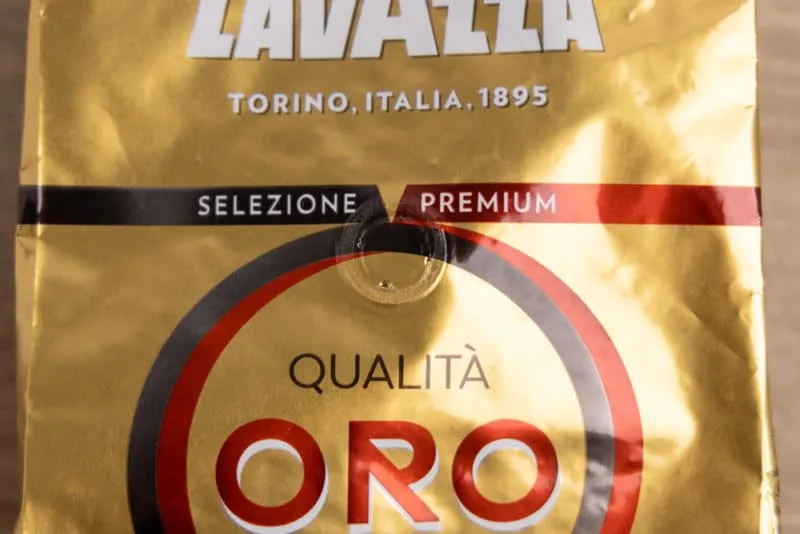
Do Coffee Beans Go Bad?
Coffee beans don’t go bad in the traditional meaning of the word, but their quality degrades over time. And after a while, the coffee you brew with old beans won’t taste as good as it did, or even acceptable. That’s when you discard the beans for quality reasons.
The easiest and best way to tell that your beans have “expired” is to brew a cup the same way you always do and check the quality. If the flavor is still okay, or at least tolerable, feel free to use it.
Of course, if you invited someone over, test those beans beforehand. You probably do that with old ground coffee or instant coffee already.
If you really don’t want to throw out those old and flavorless beans, try adding more coffee creamer, or perhaps a bit more sugar if you happen to add it to your coffee.
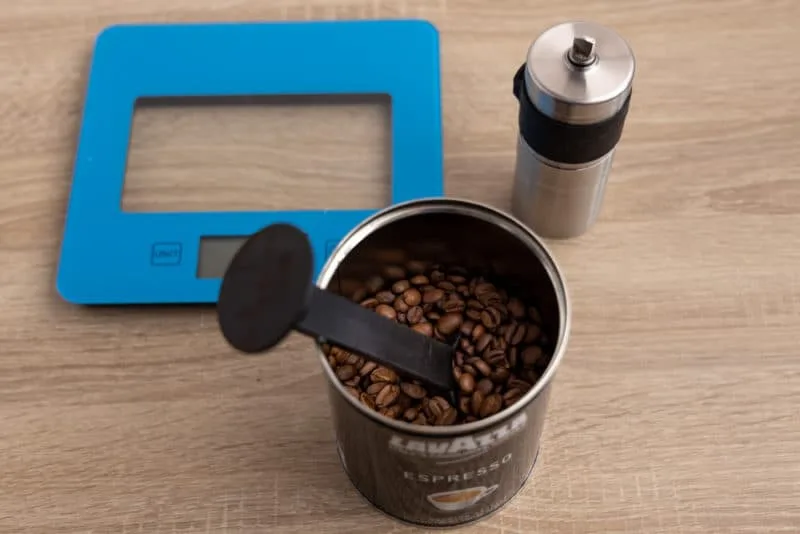
Besides the taste of the drink, which you can assess only after brewing yourself a cup, there are a couple of telltale signs that your beans might be old and not that great anymore:
- beans looking dull instead of shiny (glossy appearance informs you that there are still some oils in the beans, which we want)
- lack of smell
Even if those beans don’t look or smell that great, they might still make a decent(-ish) cup of coffee. If you’re not sure they’re useless, brew a cup and see how things go.
How long after the date on the label will be beans be good for, you ask?
Unfortunately, it’s impossible to tell. It all depends on the beans themselves, how you store them, and your personal preferences when it comes to taste. Grind them, brew a small cup, and assess for yourself.
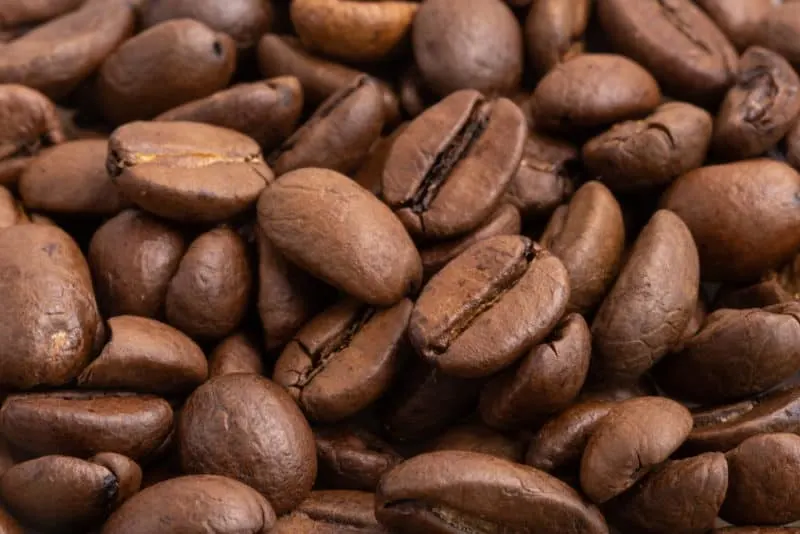
How To Store Coffee Beans
Keep your beans in a sealed container in a cool, dry, and dark place. If you care about the best possible quality, either opt for buying smaller amounts or have some beans on hand and keep the rest in the freezer. And grind your coffee right before brewing.
To keep your beans fresh the longest, you need to protect them from air, moisture, heat, and light ([NCA]).
An airtight container in a pantry cupboard usually covers all the bases, but often we want to keep our coffee beans on hand in the kitchen. If that’s the case, here are some tips:
- If you want your coffee to sit on the counter or anywhere else in direct sunlight, use an opaque container that doesn’t allow the light in.
- Don’t keep the beans near the oven, heaters, or anywhere else that gets warm on a sunny day.
- If you really want to have some beans on display in a clear canister that lets light in, limit it to only a small amount, and keep the rest in a more optimal spot.
Last but not least, coffee beans retain quality for longer at low temperatures. If you’ve bought way too many bags of specialty beans, and want them to retain freshness for longer, place them unopened in the freezer ([CTR]).
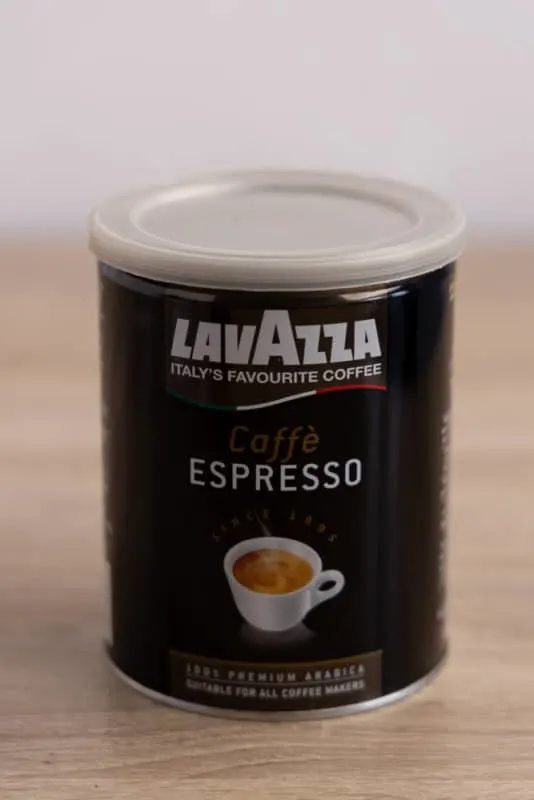
Summary
- Commercial coffee is the one you buy in the supermarket. It’s relatively cheap and comes with a long shelf life of a year or two. You can use it for months more without a huge loss of quality.
- Specialty coffee is the one you (usually) order from a roaster or specialty store. It’s more expensive, and the seller usually suggests using it within a month of the roasting date. If you appreciate great tasting beans, following that advice is definitely worth it.
- Store coffee in an airtight container, in a cool, dark, and dry place. Freezing coffee beans is an option if you want to preserve their freshness for longer and really care about the quality.
- The best way to learn if your ancient beans can still produce a decent cup of Joe is by prepping yourself a small cup and tasting the brewed coffee.